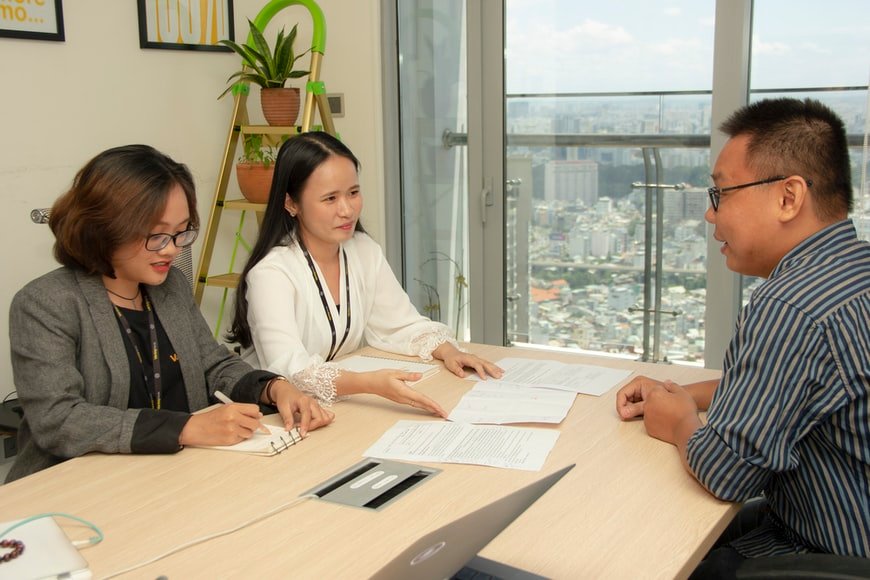Reading Passage 1
You should spend about 20 minutes on Questions 1- 13, which are based on Reading Passage 1 below.
Tackling Obesity In The Western World
A. Obesity is a huge problem in many Western countries and one which now attracts considerable medical interest as researchers take up the challenge to find a ‘cure’ for the common condition of being seriously overweight. However, rather than take responsibility for their weight, obese people have often sought solace in the excuse that they have a slow metabolism, a genetic hiccup which sentences more than half the Australian population (63% of men and 47% of women) to a life of battling with their weight. The argument goes like this: it doesn’t matter how little they eat, they gain weight because their bodies break down food and turn it into energy more slowly than those with a so-called normal metabolic rate.
B. ‘This is nonsense,’ says Dr Susan Jebb from the Dunn Nutrition Unit at Cambridge in England. Despite the persistence of this metabolism myth, science has known for several years that the exact opposite is in fact true. Fat people have faster metabolisms than thin people. ‘What is very clear,’ says Dr Jebb, ‘is that overweight people actually burn off more energy. They have more cells, bigger hearts, bigger lungs and they all need more energy just to keep going.’
C. It took only one night, spent in a sealed room at the Dunn Unit to disabuse one of their patients of the beliefs of a lifetime: her metabolism was fast, not slow. By sealing the room and measuring the exact amount of oxygen she used, researchers were able to show her that her metabolism was not the culprit. It wasn’t the answer she expected and probably not the one she wanted but she took the news philosophically.
D. Although the metabolism myth has been completely disproved, science has far from discounted our genes as responsible for making us whatever weight we are, fat or thin. One of the world’s leading obesity researchers, geneticist Professor Stephen O’Rahilly, goes so far as to say we are on the threshold of a complete change in the way we view not only morbid obesity, but also everyday overweight. Prof. O’Rahilly’s groundbreaking work in Cambridge has proven that obesity can be caused by our genes. ‘These people are not weak- willed, slothful or lazy,’ says Prof. O’Rahilly, ‘They have a medical condition due to a genetic defect and that causes them to be obese.’
E. In Australia, the University of Sydney’s Professor Ian Caterson says while major genetic defects may be rare, many people probably have minor genetic variations that combine to dictate weight and are responsible for things such as how much we eat, the amount of exercise we do and the amount of energy we need. When you add up all these little variations, the result is that some people are genetically predisposed to putting on weight. He says while the fast/slow metabolism debate may have been settled, that doesn’t mean some other subtle change in the metabolism gene won’t be found in overweight people. He is confident that science will, eventually, be able to ‘cure’ some forms of obesity but the only effective way for the vast majority of overweight and obese people to lose weight is a change of diet and an increase in exercise.
F. Despite the $500 million a year Australians spend trying to lose weight and the $830 million it costs the community in health care, obesity is at epidemic proportions here, as it is in all Western nations. Until recently, research and treatment for obesity had concentrated on behaviour modification, drugs to decrease appetite and surgery. How the drugs worked was often not understood and many caused severe side effects and even death in some patients. Surgery for obesity has also claimed many lives.
G. It has long been known that a part of the brain called the hypothalamus is responsible for regulating hunger, among other things. But it wasn’t until 1994 that Professor Jeffery Friedman from Rockefeller University in the US sent science in a new direction by studying an obese mouse. Prof. Friedman found that unlike its thin brothers, the fat mouse did not produce a hitherto unknown hormone called leptin. Manufactured by the fat cells, leptin acts as a messenger, sending signals to the hypothalamus to turn off the appetite. Previously, the fat cells were thought to be responsible simply for storing fat. Prof. Friedman gave the fat mouse leptin and it lost 30% of its body weight in two weeks.
H. On the other side of the Atlantic, Prof. O’Rahilly read about this research with great excitement. For many months two blood samples had lain in the bottom of his freezer, taken from two extremely obese young cousins. He hired a doctor to develop a test for leptin in human blood, which eventually resulted in the discovery that neither of the children’s blood contained the hormone. When one cousin was given leptin, she lost a stone in weight and Prof. O’Rahilly made medical history. Here was the first proof that a genetic defect could cause obesity in humans. But leptin deficiency turned out to be an extremely rare condition and there is a lot more research to be done before the ‘magic’ cure for obesity is ever found.
Questions 1-8
Reading Passage 1 has seven paragraphs A-H.
From the list of headings below choose the most suitable heading for each paragraph.
Write the appropriate numbers (i-xi) in boxes 1-8 on your answer sheet.
List of headings
i Obesity in animals
ii Hidden dangers
iii Proof of the truth
iv New perspective on the horizon
v No known treatment
vi Rodent research leads the way
vii Expert explains energy requirements of obese people
viii A very uncommon complaint
ix Nature or nurture
x Shifting the blame
xi Lifestyle change required despite new findings
1. Paragraph A
2. Paragraph B
3. Paragraph C
4. Paragraph D
5. Paragraph E
6. Paragraph F
7. Paragraph G
8. Paragraph H
Questions 9-13
Complete the summary of Reading Passage 1 (Questions 9-13) using words from the box.
Write your answers in boxes 9-13 on your answer sheet.
| Weight | Exercise | Sleep | Mind | Body |
| Metabolism | Less | Behaviour | More | |
| Physical | Use | Metal | Consume | Genetic |
Choose your answers in boxes 9-13 on your answer sheet.
OBESITY
Example: People with a weight problem often try to deny responsibility.
They do this by seeking to blame their 9 ……………… for the fact that they are overweight and erroneously believe that they use 10 ……………… energy than thin people to stay alive. However, recent research has shown that a 11 ……………… problem can be responsible for obesity as some people seem programmed to 12 ……………… more than others. The new research points to a shift from trying to change people’s 13 ……………… to seeking an answer to the problem in the laboratory.
Reading Passage 2
You should spend about 20 minutes on Questions 14- 26, which are based on Reading Passage 2 below.
It’s Eco-Logical
Planning an eco-friendly holiday can be a minefield for the well- meaning traveller, says Steve Watkins. But help is now at hand.
A. If there were awards for tourism phrases that have been hijacked, diluted and misused then ‘ecotourism’ would earn top prize. The term first surfaced in the early 1980s reflecting a surge in environmental awareness and a realisation by tour operators that many travellers wanted to believe their presence abroad would not have a negative impact. It rapidly became the hottest marketing tag a holiday could carry.
B. These days the ecotourism label is used to cover anything from a two-week tour living with remote Indonesian tribes, to a one-hour motorboat trip through an Australian gorge. In fact, any tour that involves cultural interaction, natural beauty spots, wildlife or a dash of soft adventure is likely to be included in the overflowing ecotourism folder. There is no doubt the original motives behind the movement were honourable attempts to provide a way for those who cared to make informed choices, but the lack of regulations and a standard industry definition left many travellers lost in an ecotourism jungle.
C. It is easier to understand why the ecotourism market has become so overcrowded when we look at its wider role in the world economy. According to World Tourism Organisation figures, ecotourism is worth US$20 billion a year and makes up one-fifth of all international tourism. Add to this an annual growth rate of around five per cent and the pressure for many operators, both in developed and developing countries, to jump on the accelerating bandwagon is compelling. Without any widely recognised accreditation system, the consumer has been left to investigate the credentials of an operator themselves. This is a time-consuming process and many travellers usually take an operator’s claims at face value, only adding to the proliferation of fake ecotours.
D. However, there are several simple questions that will provide qualifying evidence of a company’s commitment to minimise its impact on the environment and maximise the benefits to the tourism area’s local community. For example, does the company use recycled or sustainable, locally harvested materials to build its tourist properties? Do they pay fair wages to all employees? Do they offer training to employees? It is common for city entrepreneurs to own tour companies in country areas, which can mean the money you pay ends up in the city rather than in the community being visited. By taking a little extra time to investigate the ecotourism options, it is not only possible to guide your custom to worthy operators but you will often find that the experience they offer is far more rewarding.
E. The ecotourism business is still very much in need of a shake-up and a standardised approach. There are a few organisations that have sprung up in the last ten years or so that endeavour to educate travellers and operators about the benefits of responsible ecotourism. Founded in 1990, the Ecotourism Society (TES) is a non-profit organisation of travel industry, conservation and ecological professionals, which aims to make ecotourism a genuine tool for conservation and sustainable development. Helping to create inherent economic value in wilderness environments and threatened cultures has undoubtedly been one of the ecotourism movement’s most notable achievements. TES organises an annual initiative to further aid development of the ecotourism industry. This year it is launching ‘Your Travel Choice Makes a Difference’, an educational campaign aimed at helping consumers understand the potential positive and negative impacts of their travel decisions. TES also offers guidance on the choice of ecotour and has established a register of approved ecotourism operators around the world.
F. A leading ecotourism operator in the United Kingdom is Tribes, which won the 1999 Tourism Concern and Independent Traveller’s World ‘Award for Most Responsible Tour Operator’. Amanda Marks, owner and director of Tribes, believes that the ecotourism industry still has some way to go to get its house in order. Until now, no ecotourism accreditation scheme has really worked, principally because there has been no systematic way of checking that accredited companies actually comply with the code of practice. Amanda believes that the most promising system is the recently re-launched Green Globe 21 scheme. The Green Globe 21 award is based on the sustainable development standards contained in Agenda 21 from the 1992 Earth Summit and was originally coordinated by the World Travel & Tourism Council (WTTC). The scheme is now an independent concern, though the WTTC still supports it. Until recently, tour companies became affiliates and could use the Green Globe logo merely on payment of an annual fee, hardly a suitable qualifying standard. However, in November 1999 Green Globe 21 introduced an annual, independent check on operators wishing to use the logo.
G. Miriam Cain, from the Green Globe 21 marketing development, explains that current and new affiliates will now have one year to ensure that their operations comply with Agenda 21 standards. If they fail the first inspection, they can only reapply once. The inspection process is not a cheap option, especially for large companies, but the benefits of having Green Globe status and the potential operational cost savings that complying with the standards can bring should be significant. ‘We have joint ventures with organisations around the world, including Australia and the Caribbean, that will allow us to effectively check all affiliate operators,’ says Miriam. The scheme also allows destination communities to become Green Globe 21 approved.
H. For a relatively new industry, it is not surprising that ecotourism has undergone teething pains. However, there are signs that things are changing for the better. With a committed and unified approach by the travel industry, local communities, travellers and environmental experts could make ecotourism a tag to be proud of and trusted.
Questions 14-19
Do the following statements agree with the views of the writer in Reading Passage 2?
In boxes 14-19 on your answer sheet write
YES if the statement agrees with the writer’s views
NO if the statement contradicts the writer’s views
NOT GIVEN if it is impossible to say what the writer thinks about this
14. The term ‘ecotourism’ has become an advertising gimmick.
15. The intentions of those who coined the term ‘ecotourism’ were sincere.
16. Ecotourism is growing at a faster rate than any other type of travel.
17. It is surprising that so many tour organisations decided to become involved in ecotourism.
18. Tourists have learnt to make investigations about tour operators before using them.
19. Tourists have had bad experiences on ecotour holidays.
Questions 20-22
According to the information given in the reading passage, which THREE of the following are true of the Ecotourism Society (TES)?
Write the appropriate letters A-F in boxes 20-22 on your answer sheet.
A. It has monitored the growth in ecotourism.
B. It involves a range of specialists in the field.
C. It has received public recognition for the role it performs.
D. It sets up regular ecotour promotions.
E. It offers information on ecotours at an international level.
F. It consults with people working in tourist destinations
Questions 23-24
According to the information given in the reading passage, which TWO of the following are true of the Green Globe 21 award?
Write the appropriate letters A-D in boxes 23-24 on your answer sheet.
A. The scheme is self-regulating.
B. Amanda Marks was recruited to develop the award.
C. Prior to 1999 companies were not required to pay for membership.
D. Both tour operators and tour sites can apply for affiliation.
E. It intends to reduce the number of ecotour operators.
Questions 25-26
Using NO MORE THAN THREE WORDS, answer the following questions.
Write your answers in boxes 25-26 on your answer sheet.
25. Which body provides information on global tourist numbers?
26. Who often gains financially from tourism in rural environments?
Reading Passage 3
You should spend about 20 minutes on Questions 27-40 which are based on Reading Passage 3 below.
Tourism
A. Tourism, holidaymaking and travel are these days more significant social phenomena than most commentators have considered. On the face of it, there could not be a more trivial subject for a book. And indeed since social scientists have had considerable difficulty explaining weightier topics, such as work or politics, it might be thought that they would have great difficulties in accounting for more trivial phenomena such as holidaymaking. However, there are interesting parallels with the study of deviance. This involves the investigation of bizarre and idiosyncratic social practices which happen to be defined as deviant in some societies but not necessarily in others. The assumption is that the investigation of deviance can reveal interesting and significant aspects of normal societies. It could be said that a similar analysis can be applied to tourism.
B. Tourism is a leisure activity which presupposes its opposite, namely regulated and organised work. It is one manifestation of how work and leisure are organised as separate and regulated spheres of social practice in modern societies. Indeed acting as a tourist is one of the defining characteristics of being ‘modern’ and the popular concept of tourism is that it is organised within particular places and occurs for regularised periods of time. Tourist relationships arise from a movement of people to, and their stay in, various destinations. This necessarily involves some movement, that is the journey, and a period of stay in a new place or places. ‘The journey and the stay’ are by definition outside the normal places of residence and work and are of a short term and temporary nature and there is a clear intention to return ‘home’ within a relatively short period of time.
C. A substantial proportion of the population of modern societies engages in such tourist practices new socialised forms of provision have developed in order to cope with the mass character of the gazes of tourists as opposed to the individual character of travel. Places are chosen to be visited and be gazed upon because there is an anticipation especially through daydreaming and fantasy of intense pleasures, either on a different scale or involving different senses from those customarily encountered. Such anticipation is constructed and sustained through a variety of non-tourist practices such as films, TV literature, magazines records and videos which construct and reinforce this daydreaming.
D. Tourists tend to visit features of landscape and townscape which separate them off from everyday experience. Such aspects are viewed because they are taken to be in some sense out of the ordinary. The viewing of these tourist sights often involves different forms of social patterning with a much greater sensitivity to visual elements of landscape or townscape than is normally found in everyday life. People linger over these sights in a way that they would not normally do in their home environment and the vision is objectified or captured through photographs, postcards films and so on which enable the memory to be endlessly reproduced and recaptured.
E. One of the earliest dissertations on the subject of tourism is Boorstins analysis of the pseudo event (1964) where he argues that contemporary. Americans cannot experience reality directly but thrive on pseudo events. Isolated from the host environment and the local people the mass tourist travels in guided groups and finds pleasure in inauthentic contrived attractions gullibly enjoying the pseudo events and disregarding the real world outside. Over time the images generated of different tourist sights come to constitute a closed self-perpetuating system of illusions which provide the tourist with the basis for selecting and evaluating potential places to visit. Such visits are made says Boorstin, within the environmental bubble of the familiar American style hotel which insulates the tourist from the strangeness of the host environment.
F. To service the burgeoning tourist industry, an array of professionals has developed who attempt to reproduce ever-new objects for the tourist to look at. These objects or places are located in a complex and changing hierarchy. This depends upon the interplay between, on the one hand, competition between interests involved in the provision of such objects and, on the other hand changing class, gender, and generational distinctions of taste within the potential population of visitors. It has been said that to be a tourist is one of the characteristics of the modern experience. Not to go away is like not possessing a car or a nice house. Travel is a marker of status in modern societies and is also thought to be necessary for good health. The role of the professional, therefore, is to cater for the needs and tastes of the tourists in accordance with their class and overall expectations.
Questions 27-31
Raiding Passage 3 has 6 paragraphs (A-F).
Choose the most suitable heading for each paragraph from the list of headings below Write the appropriate numbers (i-ix) in boxes 27-31 on your answer sheet.
Paragraph D has been done for you as an example.
NB. There are more headings than paragraphs so you will not use all of them You may use any heading more than once.
List of Headings
- The politics of tourism
- The cost of tourism
- Justifying the study of tourism
- Tourism contrasted with travel
- The essence of modern tourism
- Tourism versus leisure
- The artificiality of modern tourism
- The role of modern tour guides
- Creating an alternative to the everyday experience
27. Paragraph A
28. Paragraph B
29. Paragraph C
| Example | Answer |
| Paragraph D | ix |
30. Paragraph E
31. Paragraph F
Questions 32-36
Do the following statements agree with the views of the writer in Reading Passage 35? In boxes 32-36 write :
YES if the statement agrees with the writer
NO if the statement contradicts the writer
NOT GIVEN if it is impossible to say what the writer thinks about this
32. Tourism is a trivial subject.
33. An analysis of deviance can act as a model for the analysis of tourism.
34. Tourists usually choose to travel overseas.
35. Tourists focus more on places they visit than those at home.
36. Tour operators try to cheat tourists.
Questions 37-40
Choose one phrase (A-H) from the list of phrases to complete each key point below. Write the
appropriate letters (A-H) in boxes 37-40 on your answer sheet.
The information in the completed sentences should be an accurate summary of points made by the writer.
NB There are more phrases A-H than sentences so you will not use them all. You may use any phrase more than once.
37. Our concept of tourism arises from …….
38. The media can be used to enhance …….
39. People view tourist landscapes in a different way from …….
40. Group tours encourage participants to look at …….
List of Phrases
A. local people and their environment.
B. the expectations of tourists.
C. the phenomena of holidaymaking.
D. the distinction we make between holidays. work and leisure.
E. the individual character of travel.
F. places seen in everyday life.
G. photographs which recapture our
H. sights designed specially for tourists.
Answers:
[restrict paid=true]
Reading Passage 1
1. x
2. vii
3. iii
4. iv
5. xi
6. ii
7. vi
8. viii
9. metabolism
10. less
11. genetic
12. consume
13. Behaviour
Reading Passage 2
14. YES
15. YES
16. NOT GIVEN
17. NO
18. NO
19. NOT GIVEN
20.
21. & 22. B, D, E [in any order]
23. & 24. A, D [in either order]
25. World Tourism Organisation
26. city entrepreneurs
Reading Passage 3
27. iii
28. v
29. iv
30. vii
31. viii
32. NO
33. YES
34. NOT GIVEN
35. YES
36. NOT GIVEN
37. D
38. B
39. F
40. H













